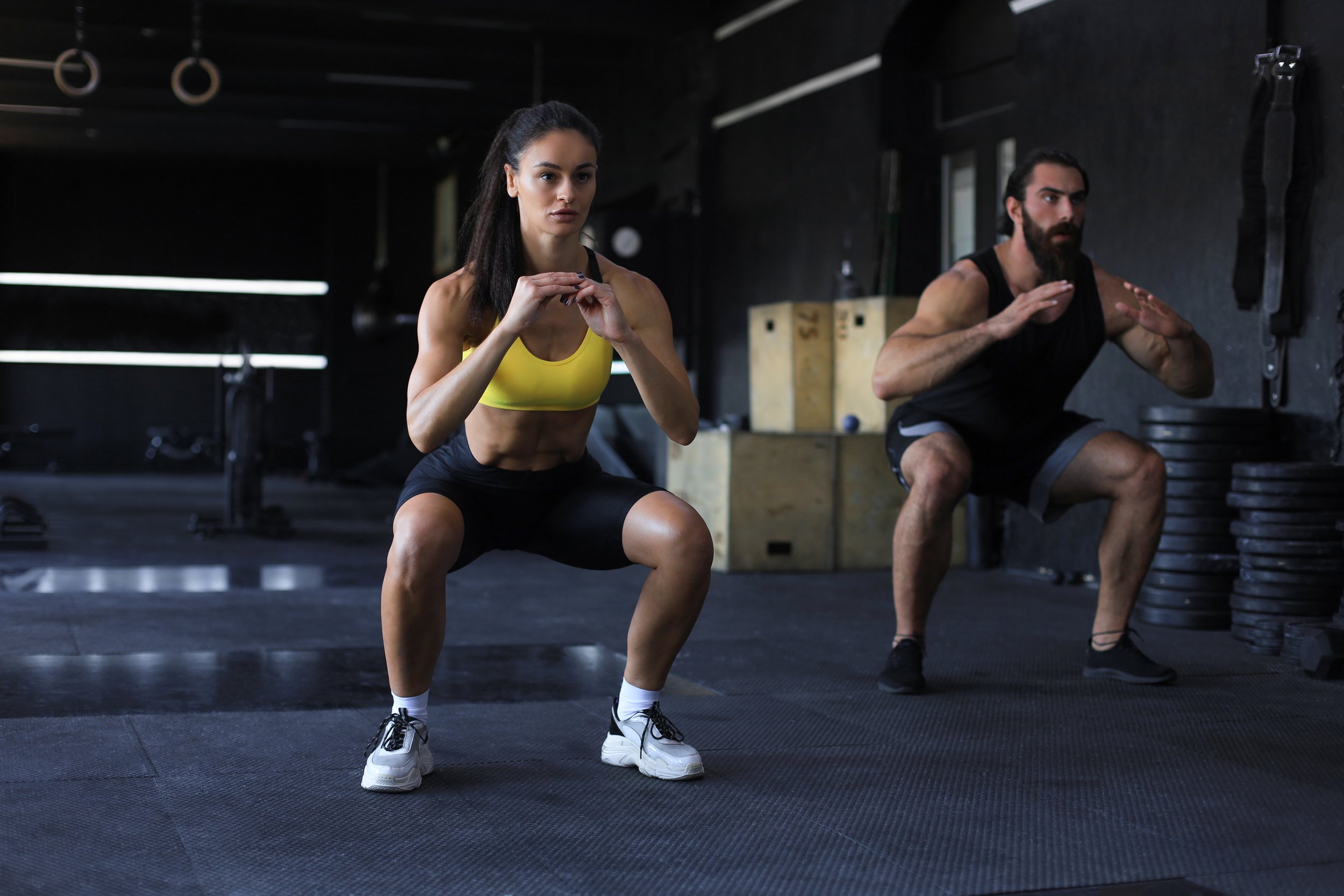Health Benefits of Squats
Mastering the basic squat can provide numerous health benefits, such as strengthening your hip, calf, and hamstring muscles, as well as improving your core muscles. This is why squats are a staple exercise in many workout routines. Here are some of the major health benefits of squats:
1. Strengthens Lower Body Muscles
Squats primarily target muscles in the lower body, including the quadriceps, hamstrings, glutes, and calves. Strengthening these muscles can improve overall lower body strength, stability, and endurance.
2. Improves Functional Movement
Squats mimic everyday movements like sitting down and standing up, making them functional exercises that improve your ability to perform daily activities with ease.
3. Enhances Core Strength
While squats are primarily considered a lower body exercise, they also engage the core muscles, including the abdominals and lower back, to stabilize the body during the movement. This can contribute to better overall core strength and stability.
4. Boosts Joint Health
When performed correctly, squats can help improve joint health by strengthening the muscles around the knees, hips, and ankles. This added strength can reduce the risk of injuries and alleviate joint pain associated with conditions like osteoarthritis.
5. Increases Bone Density
Weight-bearing exercises like squats can help increase bone density, reducing the risk of osteoporosis and promoting long-term bone health.
6. Burns Calories
Squats are a compound exercise, meaning they engage multiple muscle groups simultaneously. This results in a higher calorie burn compared to isolation exercises, making squats an effective addition to a weight loss or maintenance program.
7. Improves Balance and Coordination
Squats require coordination and balance to perform correctly, especially when adding weights or incorporating variations like single-leg squats. Regularly practicing squats can enhance overall balance and coordination, reducing the risk of falls and improving athletic performance.
8. Enhances Flexibility
Performing squats through a full range of motion can improve flexibility in the hips, knees, and ankles, increasing mobility and reducing the risk of injury during physical activities.
9. Promotes Hormonal Balance
Squats engage large muscle groups, which can stimulate the release of hormones like testosterone and growth hormone. These hormones play essential roles in muscle growth, metabolism, and overall health.
10. Improves Posture
Proper squat technique requires maintaining a neutral spine and upright posture throughout the movement. Regularly practicing squats can help reinforce good posture habits, reducing the risk of postural imbalances and associated pain.
To perform squats correctly, you should start with your feet hip-width apart and your toes pointing forward. Lower your body by bending your knees and hips, as if you're sitting back into a chair. Keep your weight on your heels, your chest lifted, and your knees in line with your toes. Your thighs should be parallel to the ground or lower. Return to the starting position by pushing through your heels and straightening your knees and hips.
To ensure that you're performing squats correctly, it's recommended that you consult with a fitness professional or personal trainer. They can assess your form and technique, provide feedback and adjustments, and create a workout plan tailored to your fitness level and goals.
Sources:
https://www.businessinsider.com/guides/health/fitness/benefits-of-squats
https://www.healthline.com/health/exercise-fitness/squats-benefits#basic-squat
https://www.webmd.com/fitness-exercise/health-benefits-of-squats


